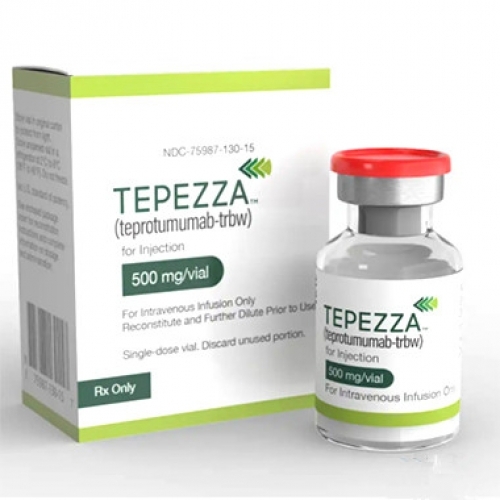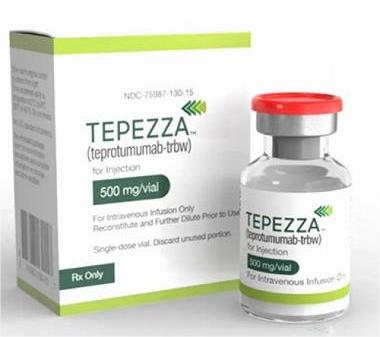Thyroid Eye Disease (TED), also known as Graves' ophthalmopathy, is an autoimmune disorder that affects the eyes due to an overactive thyroid gland. The condition is characterized by the inflammation of tissues behind the eyes, leading to eye bulging, double vision, and in severe cases, vision loss. Until recently, the treatment options for TED were limited, and patients had to resort to managing the symptoms rather than addressing the root cause. However, with the introduction of Tepezza (Teprotumumab-trbw), a groundbreaking medication, there is renewed hope for patients suffering from this debilitating disease.
Tepezza, developed by Horizon Therapeutics, was approved by the U.S. Food and Drug Administration (FDA) in January 2020 as the first and only treatment specifically designed to target the underlying cause of TED. It is a monoclonal antibody that acts by inhibiting the activity of insulin-like growth factor-1 receptor (IGF-1R), which plays a crucial role in the inflammatory process associated with TED.
The effectiveness of Tepezza has been demonstrated in clinical trials, with remarkable outcomes. In a phase III clinical trial, known as the OPTIC study, patients with active TED received infusions of Tepezza every three weeks for a total of eight infusions. The study showed that 71% of patients who received Tepezza experienced a significant reduction in eye bulging, compared to only 21% of patients who received a placebo. Additionally, in 82.9% of patients treated with Tepezza, the disease did not progress further.
Moreover, Tepezza not only improves the physical appearance of patients by reducing eye bulging, but it also has a positive impact on other TED-related symptoms. Patients treated with Tepezza reported improvements in eye pain, eye redness, and swelling, in addition to a restoration of their quality of life. The drug has shown substantial efficacy in reducing the need for surgical interventions such as orbital decompression surgery, which was previously the mainstay treatment option for severe TED cases.
The safety profile of Tepezza has also been favorable. The most common side effects reported in clinical trials are muscle spasm, nausea, diarrhea, hair loss, fatigue, and headache. However, these side effects were generally mild and manageable. It is worth noting that due to the immunosuppressive nature of the medication, patients taking Tepezza need to be monitored closely for any signs of infections.
Tepezza is a groundbreaking treatment that has brought about a paradigm shift in the management of TED. Prior to its availability, patients with active TED had limited options, but now there is hope for a better quality of life. The drug's efficacy, demonstrated through rigorous clinical trials, along with its proven safety profile, have made it a game-changer in the field of TED treatment.
In conclusion, Tepezza offers an innovative and effective solution for patients suffering from thyroid eye disease. The medication's ability to improve eye bulging, reduce other TED-related symptoms, and potentially prevent the need for surgical interventions, makes it an exceptional treatment option. With the availability of Tepezza, patients now have a real chance at improving their overall eye health and reclaiming their lives from the burdensome effects of TED.

 全部分类
全部分类


 美国Horizon Pharma
美国Horizon Pharma



 粤ICP备2021070247号
粤ICP备2021070247号
